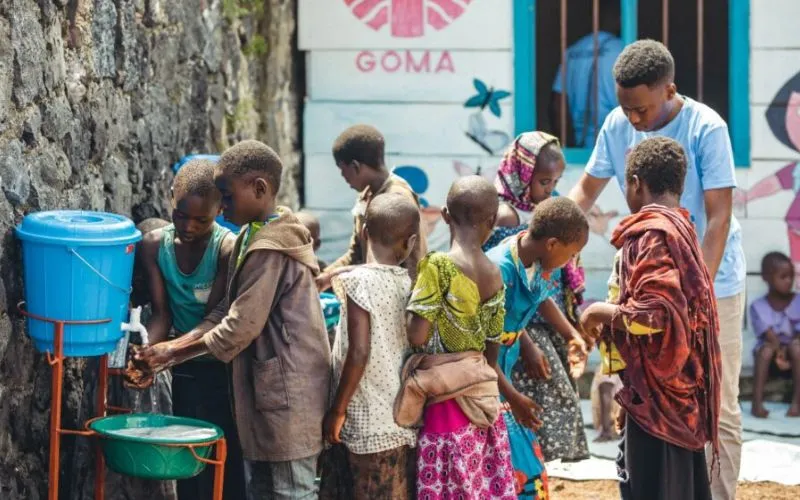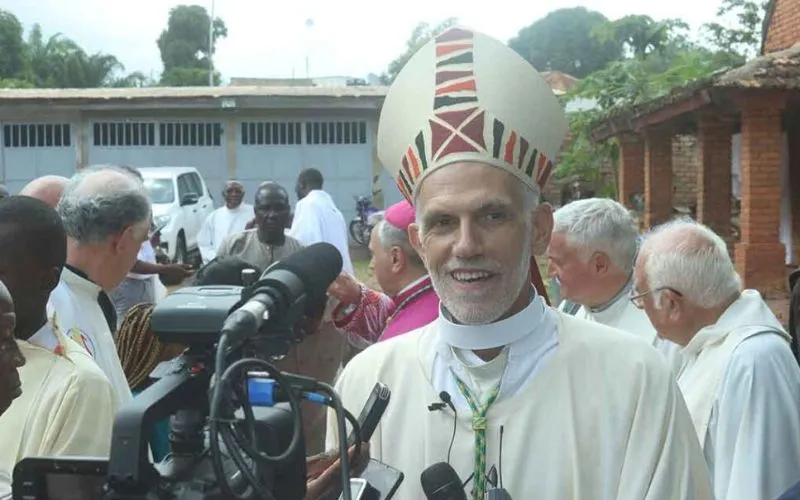“For decades, the organization has been providing sustainable reconstruction assistance, as well as delivering immediate humanitarian aid for survival,” the Caritas officials say, and add, “Currently 150,000 people are assisted by Caritas Goma, which focuses on the areas most affected by displacement and violence, particularly the North Kivu province.”
Amid the increased number of IDPs and their related basic needs, including food and shelter as well as water, sanitation, and hygiene (WASH), Caritas Congo Asbl officials say they have “played a substantial role in supporting these needs by taking over various WASH facilities from other NGOs to supply potable water and preserve latrine blocks in IDP camps.”
“Over 1.2 million liters of water per day are provided by Caritas Goma, a figure that covers one-third of the water needs in the six main camps and includes the rehabilitation of municipal piping systems and water transport,” they say in the July 17 report.
The development and humanitarian arm of CENCO is also providing health and protection services to the vulnerable persons, including children, victims of sexual violence, pregnant women, and nursing mothers.
“The need for medical support is crucial in these areas, where large numbers of families, often headed by women, struggle for their survival and that of their loved ones,” the Caritas officials say, adding that since 2004, the organization has been able to “reintegrate 12,400 former child soldiers, demonstrating a deep commitment to long-term recovery and subsequent social stability.”
In the July 17 report, Caritas officials also refer to their development projects that focus on long-term sustainability in the region. They add, “Despite the difficulties of the ongoing conflict, these projects successfully aim to alleviate the food crisis by providing WASH, non-food items, and protection, benefiting thousands of families.”
Through the Justice and Peace Department of Caritas Goma, the officials say that interreligious forums and grassroots committees are being organized to address “conflict factors such as the politicization of ethnicity, hostilities over resources, and access to land.”
“Their goal involves addressing low-threshold conflicts in villages to prevent aggression and ensure that perpetrators of violence are justly punished,” they say, and lament, “Sadly, a large number of victims do not press charges for fear of even heavier repercussions.”
Silas Mwale Isenjia is a Kenyan journalist with a great zeal and interest for Catholic Church related communication. He holds a Bachelor’s Degree in Linguistics, Media and Communication from Moi University in Kenya. Silas has vast experience in the Media production industry. He currently works as a Journalist for ACI Africa.








